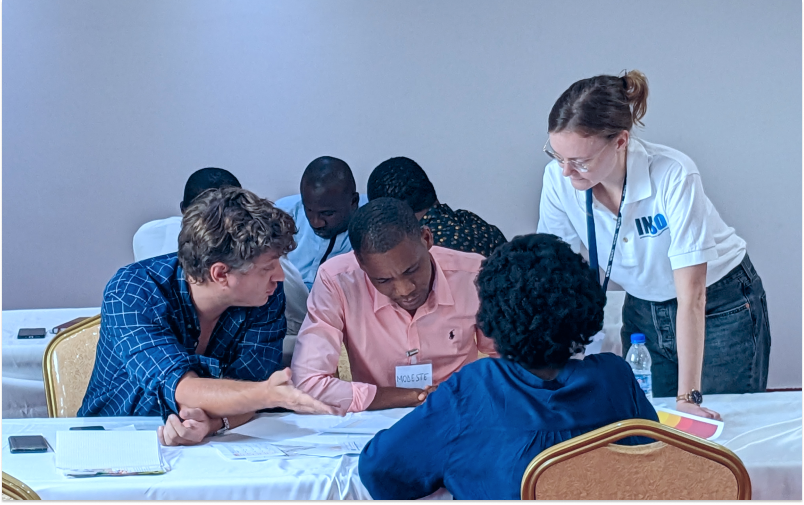INSO has received a grant from Le Centre de crise et de soutien (The Crisis and Support Centre, CDCS), within the French Ministry for Europe and Foreign Affairs, to pilot a two-part training project. This first part of this project sees experienced INSO trainers conduct a series of in-person, localised humanitarian training courses in countries with complex risk environments.
NGO staff who work with and in communities affected by conflict are highly exposed to risks. In 2022, 323 NGO staff were abducted, injured or killed. Local NGO staff also frequently lack access to life-saving training that can help them do their job better – and more safely.
“Local NGO staff are critical to the delivery of many humanitarian services. They are embedded in communities and often face risks in their day-to-day humanitarian work. These trainings can equip them with the tools with tools that can help them keep safe and deliver aid in a principled way,” says Félicie Chevallier, INSO’s Global Training Manager.
“The courses cover subjects such as humanitarian negotiations, access, and NGO security management – and each course is tailored to the context and needs of participants in each country the team visits,” Félicie adds.
During the initial project period, January to December 2023, around 400 NGO workers are expected to be equipped through this roving training project. So far, the INSO roving team has conducted training in Côte d’Ivoire and Benin, both in capitals and further afield for staff in more remote locations. Discussions are ongoing for sessions in several other countries with similarly mid-risk safety environments or worsening conflicts. Looking ahead, this team also intends to offer training on crisis management and negotiation to senior managers at NGO headquarters.
In selecting countries for this project, INSO conducts a needs assessment and consults in-country NGOs and forums. Participants are selected from staff nominated by country-based NGOs, with a deliberate emphasis on the participation of local employees and females.
Training participants in Côte d’Ivoire have already put into action what they have learnt.
“Following the training, my team was confronted with the refusal of a nutrition project by the community of a village. Because of what I had learnt, I was able to negotiate for the project to be accepted. Today, the project is underway in this locality,” says Katiénindjo Abou Soro, staff member of Génération Femme du 3ème Millénaire (GFM3 ).
“The trainings allowed our colleagues to play a leading role within our field offices for the implementation of security measures, but especially for the attention to be paid to our principles, our behaviour, our choice of words and how we explain and justify to other colleagues the implementation of these changes,” says Yannick Pouchalan, Action against Hunger Country Director in Côte d’Ivoire.
The second pillar of this CDCS-supported project, online learning, includes the production of two digital learning courses for humanitarians. The digital courses will be intentionally designed for aid workers working on the front lines of crises who are furthest from decision centres as well as support and learning structures. Seen in combination, this two-part project will strengthen the humanitarian community’s understanding of the importance of principled action, safety and access.
INSO is grateful to Le Centre de crise et de soutien (CDCS) for supporting and funding this pilot training project.

